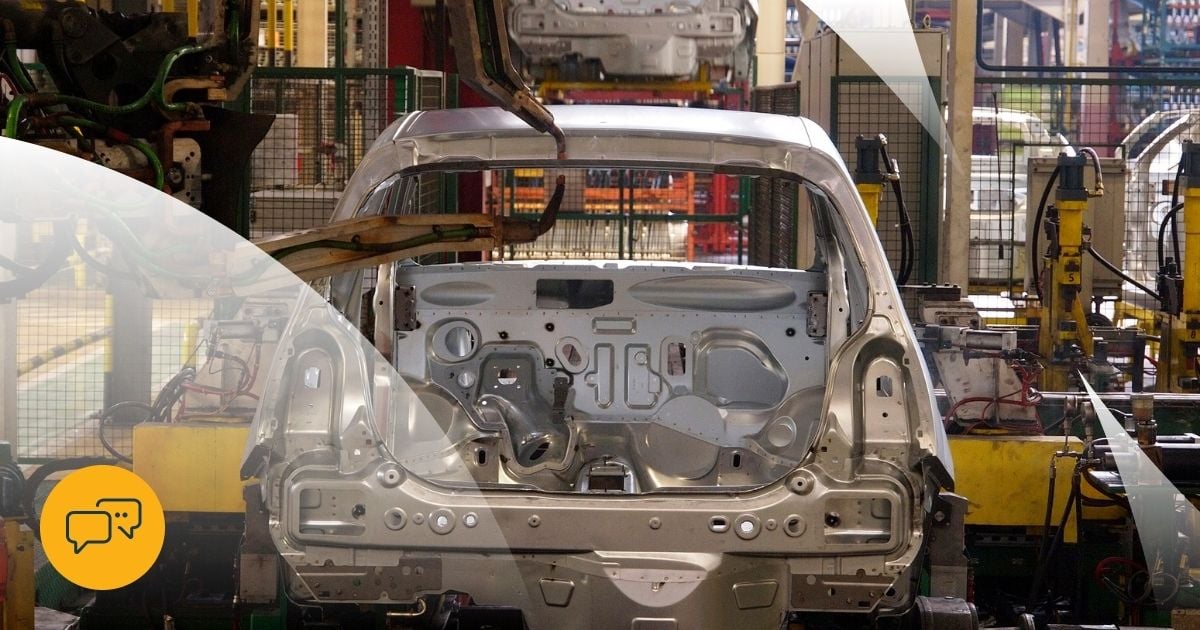Manufacturing is an industry that sees constant change. CRM is evolving rapidly, too. CIOs fostering their digitalization strategy are especially focusing on solutions that add measurable value and provide not only an industry fit, but are future-proof.
So what are the most significant trends in CRM in the manufacturing industry?
Trend 1. Holistic view on Partner and Direct Sales Business
Having a holistic view of direct and channel business gets you accurate business forecasts and helps decipher early demand signals. To drive partner business, it is essential to set the right incentive structure to enable pipeline transparency.
How do you achieve that? A simplified and fast quotation process using Configure-Price-Quote software, deeply integrated within an overall CRM process is helping your direct sales and partners to improve efficiency and grow top-line revenue.
It can also empower Sales Managers to identify deals at risk and coach their teams on the next steps to increase close rates and speed up sales cycles. Pull quote forecasts by quantity can help improve production capacity utilization and keep costs low to improve margins or simply beat one more competitor.
With these growth opportunities on hand, your partners have the right incentive to share their pipeline digitally. The same holds true for your direct sales.
Do you want to experience how sales digitalization adds measurable value to your manufacturing business? Download our Guide to "Accelerate Manufacturing Sales"!
Trend 2. True End-to-End Mass Customisation
The Industry 4.0 term ‘Lot size of one’ is everything but new in B2B manufacturing. Especially for Manufacturing-as-a-Service businesses. However, streamlining and simplifying Configure-to-Order (CTO) and Engineering-to-Order (ETO) business processes remains a hot topic today. Business and IT are constantly challenged to improve efficiencies, zero out errors, and especially, create new sales and customer engagement channels.
Offering mass-customized manufacturing solutions promise advantages when working with smaller lot sizes, such as reduced inventory and working capital, warehouse space, personnel, and consequently, costs.
Meanwhile meeting the customer demands swiftly and individually helps you to diversify your product range, attract new customers, and entice satisfied customers to come back for more.
The business case is too convincing to NOT connect your manufacturing CRM to the shop floor and enable true end-to-end mass customization.
Trend 3. 360 Degree Account Insights - the Mashed-Up Enterprise
Data is the new gold. In manufacturing companies, customer data is spread everywhere - from CRM to ERP, to support and quality control systems. For driving deep customer engagements and top-line revenue, a 360-degree customer overview is always essential for the modern manufacturer.
All relevant data needs to be mashed up and available at your fingertips to make sure your sales teams can build the right sales tactics for every engagement.
Dashboards with always up-to-date information about your customer engagements will help you to uncover risks before they turn into hard-to-fix problems that potentially erode your margins or damage the customer relationship.
Your competition is just waiting for that to happen.
Trend 4. Leverage Your Aftermarket Opportunities
How well do your aftermarket operations perform? Providing customers with the right services, spare parts, and consumables at the right time and for the right price is not an easy task.
This is the moment when your customer is most vulnerable and therewith your customer relationship. Offering self-service options and streamlining all after-sales processes not only improves customer satisfaction, but significantly boosts your share-of-wallet and the customer lifetime value.
With an e-commerce portal, you can offer your customers an easier way to find matching spare parts and consumables for their existing solutions. Built-in configuration, always-up-to-date prices and account discounts plus integrated up- and cross-selling will help you to sell more, with less sales effort whilst making your customers happy.
It is a classic win-win situation manufacturers cannot afford to miss out on.
Trend 5. The Holy Grail of Sales Efficiency
“It is much more rewarding to do more with less”, said not only Stanford computer scientist Donald Knuth, but every CEO under the sun. Growing your sales while lowering costs? That requires the right strategy and the right tools. In Manufacturing sales, the quotation process has huge potential to improve efficiency.
Offering manufacturing products and solutions is a complex process. Be it due to their variability, difficult costing or pricing structures, collaboration requirements, or generally their ETO or CTO nature.
Sales reps are expected to quickly churn out quotes right in front of the customer, regardless of the difficulties mentioned above. Imagine auto-populating your systems with contacts, emails, and meetings with just a few clicks, or receiving an accurate forecast based on insights derived from proposals seen or accepted by customers.
Automating sales through a solution that unifies CRM, CPQ, and Commerce, while providing relevant information to your sales force and guiding them through the sales process is the key to true sales efficiency.
Manufacturing CRMs of the century will provide sales optimization features that remove friction from the buyer and help sales representatives focus on the customer problem and the entire customer journey.
Conclusion: A CRM might not be enough
The overall scheme of the Manufacturing CRM is changing from solving single problems directly connected to customer interactions, to an overarching data-driven focus on the customer journey.
Moving forward, CRMs are expected to boost direct sales, and support partner and channels sales in reaching their goals and achieving competitive advantages.
The market is moving towards a notion of convergence where you need one unified platform to optimize the end-to-end customer experience. This platform housing data, applications, and processes, will become the glue that brings together otherwise siloed processes that span across CRM, CPQ, Commerce, Aftermarket-Sales and Service (IoT) processes.
Do you want to learn how to build a sustainable strategy to respond to current and future manufacturing sales challenges? Download our Guide to "Accelerate Manufacturing Sales"!

 Deutsch
Deutsch






